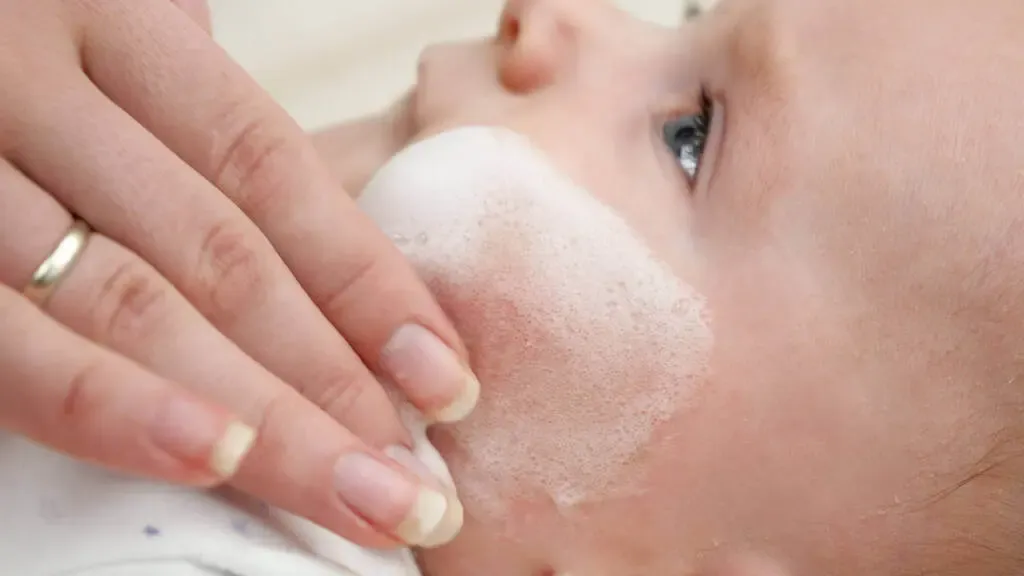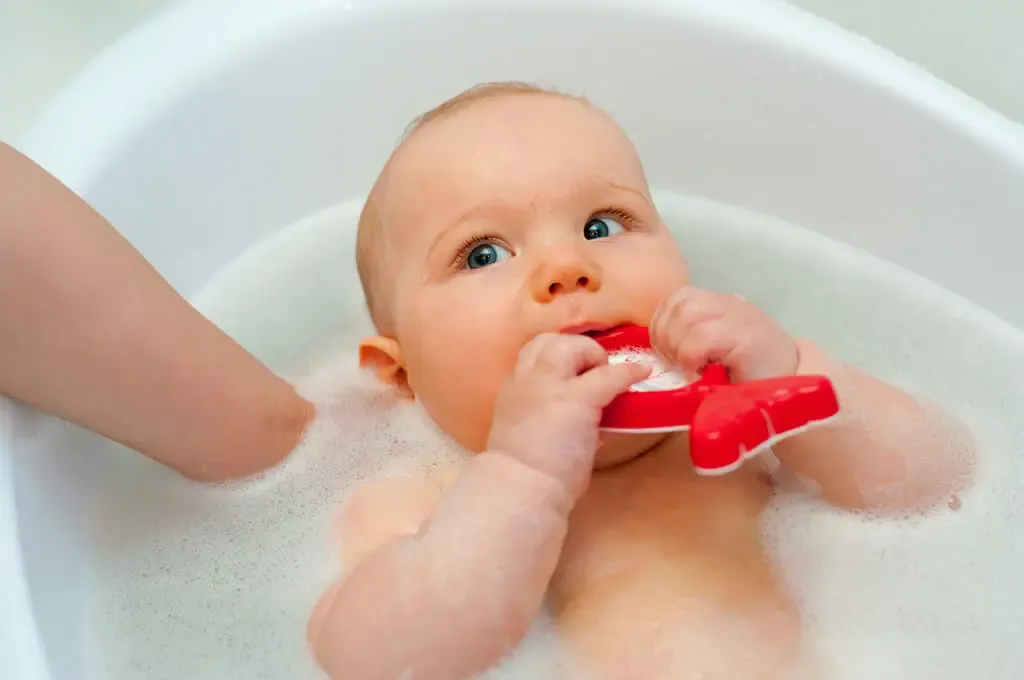Overview of the Benefits of Limiting Baby’s Bath Time
When it comes to baby care, sometimes less is more. One area where this principle applies is in bath time. Limiting a baby’s bath time can have numerous benefits for their delicate skin and overall well-being. By using lukewarm water and keeping bath sessions short, parents can prevent dry skin, eczema flare-ups, and maintain the baby’s natural oils.
In addition, limiting bath time ensures that the water temperature and the baby’s body temperature are in sync, promoting relaxation and reducing the risk of overheating. A shorter bath time also allows parents to spend more time engaged in skin-to-skin contact and creates opportunities for valuable quiet time and bonding.
In this article, we will explore the benefits of limiting baby’s bath time and how it can positively impact a baby’s physical and emotional development.
What is a Good Amount of Bath Time for Babies?
When it comes to bath time for babies, finding the right balance is key. While it’s important to keep your little one clean and comfortable, excessive bathing can actually have negative effects on their delicate skin and overall well-being.
Daily Routines and Periods of Time
Daily routines and periods of time play a vital role in a baby’s bath time routine. Establishing a consistent routine for your little one’s bathing can promote a sense of stability and security.
Establish a Regular Bath Routine
Incorporating specific periods of time into your baby’s bath time routine can be beneficial. For example, having a warm bath before bedtime can help relax your baby’s body and mind, promoting a restful sleep. Alternatively, a bath time routine after a meal can create a tranquil period of time for digestion.
By establishing a regular bath time routine, babies can understand and anticipate the different activities throughout their day. This can provide them with a sense of security and structure, helping them feel more at ease. Additionally, a consistent routine can aid in their cognitive development by enhancing their understanding of time and sequencing.
Fostering a Strong Bond
Moreover, the bond formed between parent and baby during bath time can have long-lasting effects. Skin-to-skin contact during bathing enhances parental sensitivity and emotional availability. This can foster a strong attachment relationship, which is crucial for a child’s overall development and emotional well-being.

Water Temperature and Inches of Water
Maintaining the proper water temperature and utilizing the appropriate amount of bath water when bathing a baby is of utmost importance for their comfort and safety.
Sensitive Skin
For babies with sensitive skin, such as those prone to eczema, it is crucial to ensure that the water temperature is lukewarm and does not exceed the average body temperature. Water that is too hot can lead to skin irritation and exacerbate eczema flare-ups. By using water that is at or slightly below body temperature, parents can help prevent any potential discomfort or irritation to their baby’s delicate skin.
Optimal Temperature
To ensure the water temperature is within a safe range, it is recommended to use a baby bath thermometer. This handy tool allows parents to accurately monitor and adjust the water temperature accordingly. By using a bath thermometer, parents can have peace of mind knowing that the water is at the optimal temperature for their baby’s bath.
Amount of Water
Equally important is the amount of water used during bath time. Using too much water can be overwhelming and unsafe for a baby. By filling the bath with just enough water to cover their body, typically 2-4 inches, parents can provide a cozy and secure bathing experience for their little one.
By paying attention to water temperature and utilizing an appropriate amount of water, parents can ensure that their baby’s bath time is not only enjoyable but also safe for their sensitive skin.
Other Benefits
Here are some other benefits of limiting your baby’s bath time.
Improved Blood Flow and Pressure
Limiting your baby’s bath time can actually improve their blood flow and blood pressure, leading to numerous benefits for their overall health and development. When babies are in warm water, their blood vessels dilate, allowing for improved blood flow throughout their body. This increased blood flow helps deliver essential nutrients and oxygen to their growing organs and tissues, promoting healthy development.
Positive Effects on Your Baby’s Well-being
Additionally, maintaining optimal blood pressure during bath time can have positive effects on your baby’s well-being. It helps regulate their heart rate and supports proper functioning of their cardiovascular system. Adequate blood pressure also aids in the removal of waste products from their body, promoting a healthy circulatory system.
By limiting bath time, you reduce the risk of overexposure to warm water, which can potentially lead to negative effects on blood flow and blood pressure. Prolonged exposure to warm water may cause blood vessels to relax too much, resulting in decreased blood pressure and potential light-headedness or fainting.
Sensitive Skin and Eczema Flare-Ups
Bath time can be a challenging task for babies with sensitive or dry skin, or prone to eczema flare-ups. These conditions can make their delicate skin even more susceptible to irritation and discomfort.
Certain factors during bath time, such as water temperature and chemicals in the water, can trigger these flare-ups. Hot water can strip the skin of its natural oils, leading to dryness and itchiness. Additionally, harsh chemicals commonly found in tap water, such as chlorine, can further irritate sensitive skin and exacerbate eczema symptoms.

Minimize Flare-ups
To minimize the risk of flare-ups during bath time, parents should consider installing a water filter or using a gentle, chemical-free cleanser to reduce the exposure to harsh chemicals.
Selecting Baby Products
When selecting baby products, it is crucial to choose ones specifically designed for sensitive or eczema-prone skin. Look for gentle cleansers or bath oils that are fragrance-free and hypoallergenic. Avoid products with harsh ingredients or artificial fragrances that can further irritate the skin.
By taking these precautions and using gentle baby products, parents can help safeguard their baby’s sensitive skin and minimize the risk of eczema flare-ups during bath time.
Quiet Time and Emotional Availability
In addition to addressing the physical aspects of bath time, it is equally important for parents to prioritize the emotional well-being of their baby. Creating a calm and emotionally available environment during bath time can have numerous benefits for the baby’s overall development and mental health.
Benefits of Quiet Time
Quiet time during bath time allows for a peaceful and relaxed atmosphere, fostering a sense of security and comfort for the baby. By minimizing unnecessary noise and distractions, parents can create an environment conducive to bonding and connection with their little one. This uninterrupted one-on-one time offers an opportunity for parents to be fully present and emotionally available to their baby’s needs.
Emotionally Available
Being emotionally available and using soothing routines during bath time can have a positive impact on the baby’s sleep patterns and stress responses throughout the day.
A study conducted by researchers found that infants whose parents responded promptly and sensitively to their distress during bath time showed improved sleep patterns and enhanced stress regulation. Babies who experienced emotional availability during bath time were more likely to have regulated cortisol levels, leading to a better ability to cope with stressors.
Maintaining a manner that is free of irritation and hostility during bath time is crucial in promoting the baby’s emotional well-being. Being responsive and attending to the baby’s distress signals helps build a secure attachment relationship and enhances the baby’s trust in their caregiver.
This emotional availability fosters a sense of safety and security, allowing the baby to explore their environment and develop healthy coping mechanisms.

How to Limit Your Baby’s Bath Time Safely
When it comes to bath time for babies, less is often more. Limiting your baby’s bath time can have numerous benefits for their delicate skin and overall well-being.
By following a few simple guidelines and practicing safe bathing techniques, you can create a positive and enjoyable bathing experience for both you and your little one.
Preparation Tips for Baby Products
When it comes to limiting your baby’s bath time, it’s important to consider the preparation tips for baby products.
Use Unscented Baby Products
One crucial aspect is using unscented baby products to avoid irritating your little one’s delicate skin.
First, opt for baby products that are specifically labeled as unscented. Fragrances can contain chemicals that may be harsh on the baby’s skin, leading to dryness and potential irritations. Look for products that are formulated without any added fragrances.
Source Dye-free Products
Additionally, choose baby products that are dye-free. Dyes can also be irritating to sensitive skin, so it’s best to avoid them altogether. By opting for dye-free products, you reduce the risk of causing any discomfort or skin reactions.
Use the Right Detergent
When it comes to washing your baby’s clothing, use a fragrance-free and dye-free detergent. This ensures that no leftover residue will remain on the clothes that could potentially irritate your baby’s skin. Follow the recommendations on the detergent packaging to ensure the right amount is used.
Wash Your Baby’s Clothes Separately
Lastly, consider washing your baby’s clothing separately from the rest of the family’s laundry. This helps minimize the risk of any potential skin irritation from coming into contact with detergents or other products that may not be suitable for your baby’s delicate skin.
Parental Sensitivity When Bathing Baby
When it comes to bathing a baby, parental sensitivity plays a vital role in ensuring the baby’s comfort and safety. Gentle touch and careful handling are essential to prevent any unnecessary discomfort or harm to the little one.
Maintain Eye Contact
Maintaining eye contact during bath time has significant benefits. It not only helps create a stronger bond between the parent and baby but also reassures the baby of their presence and safety. Positive communication, such as talking or singing, can also contribute to a pleasant bathing experience. Engaging in these interactions with the baby can make them feel loved and valued.
Offer Emotional Support
Offering emotional support during bath time is equally important. Babies are sensitive to their parents’ emotions and can pick up on any signs of stress or anxiety. By remaining calm and providing a soothing environment, parents can ensure a more relaxed experience for both themselves and their baby.
Be Responsive to Your Baby’s Needs
Responsiveness to the baby’s cues is another aspect of parental sensitivity during bath time. Being attuned to the baby’s needs allows parents to adjust the water temperature, make necessary adaptations, and respond promptly to any signs of discomfort or distress. This responsiveness enhances the bonding experience and fosters a sense of security for the baby.

Conclusion
In conclusion, implementing a nightly bedtime routine for children provides numerous benefits for their overall well-being and development. The key findings from the background information support the importance of establishing a consistent routine.
Establish a Bedtime Routine
A bedtime routine promotes nurturing care by allowing parents or caregivers to provide emotional support and create a soothing environment for the child. The routine includes activities such as bath time, story-sharing, and skin-to-skin contact, all of which enhance the bond between the caregiver and child.
Good for Cognitive Development
Furthermore, a bedtime routine provides early child stimulation, which is crucial for cognitive development. Activities like reading books, singing lullabies, or engaging in bedtime conversations foster language development and improve communication skills. These interactions contribute to positive developmental outcomes and nurture a child’s curiosity, creativity, and problem-solving abilities.
Better Sleep and Behavior
Research suggests that children with a consistent bedtime routine experience improvements in sleep patterns, mood, and overall behavior. This positive routine is associated with better emotional regulation, enhanced attachment relationships, and improved language development. Longitudinal and intervention studies support the long-term benefits of implementing a bedtime routine.
In Summary
To sum up, childcare providers and parents are encouraged to establish a nurturing and consistent bedtime routine as an essential component of providing optimal care for their children. This routine not only helps children feel secure and loved but also supports their cognitive, emotional, and social development.





